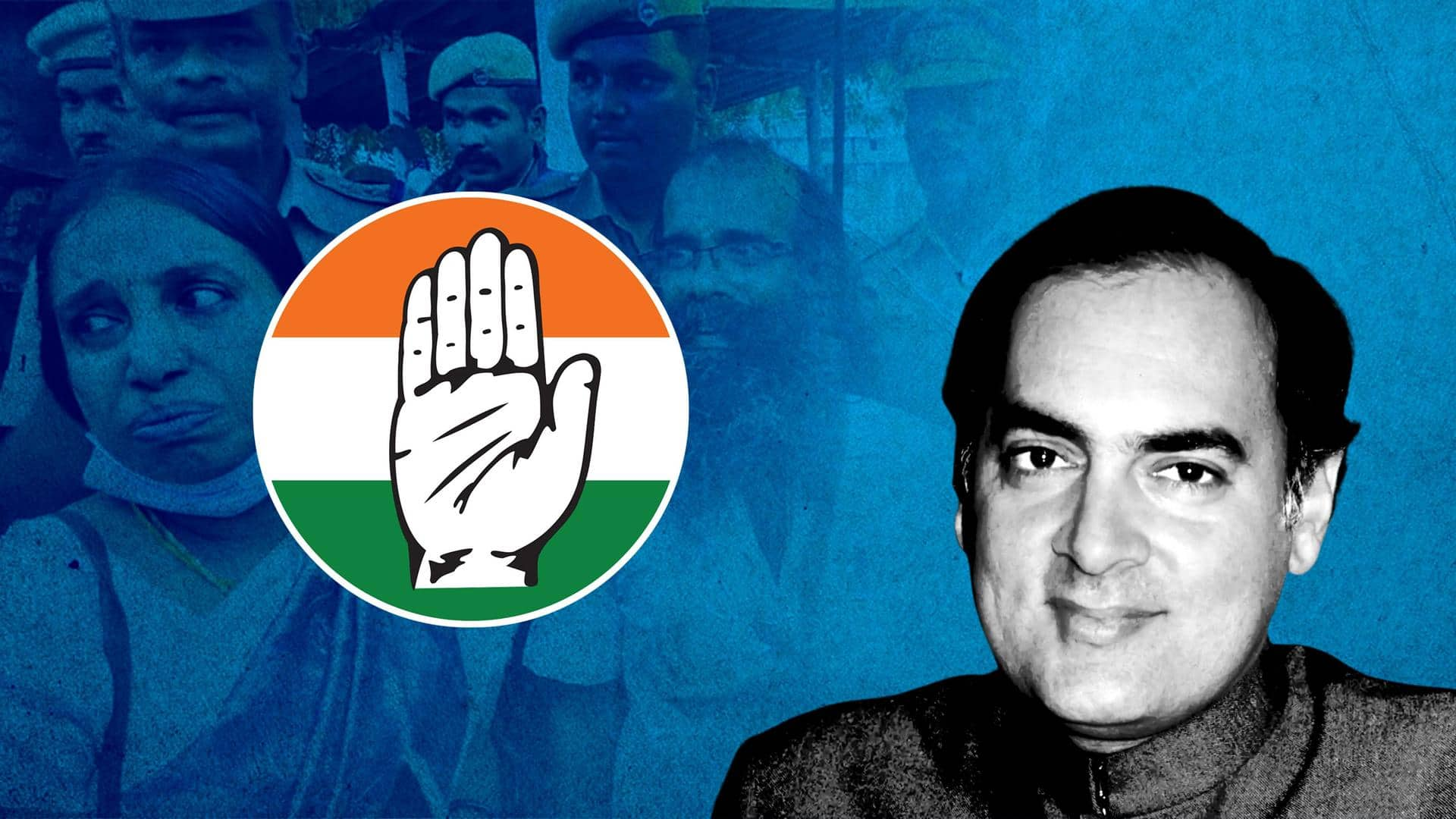
Congress to challenge SC order allowing Rajiv Gandhi assassins' release
What's the story
The Congress has decided to challenge the Supreme Court's decision to free six convicts in the Rajiv Gandhi assassination case earlier this month.
Its review petition would be submitted within the next three to four days, Hindustan Times reported.
The party called the top court's decision "completely unacceptable," arguing that the convicts should not be regarded as "heroes" as they were not acquitted.
Context
Why does this story matter?
The release of the six convicts signaled the closure of the high-profile Rajiv Gandhi assassination case.
This came months after bail was granted to AG Perarivalan—the first convict released this year after the SC invoked its extraordinary power under Article 142.
Faced with the death penalty, four of the convicts were saved by their good conduct and delay in deciding on their mercy pleas.
Details
BJP-led Centre, Congress on same page in the matter
On Friday, the central government also petitioned the SC to reconsider its ruling on releasing the convicts.
"We are yet to decide on the modalities—whether we will intervene in the central government's review application or intervene otherwise," senior Congress leader and lawyer Abhishek Manu Singhvi told PTI.
In a rare instance, the BJP-led Centre and Congress are on the same page over this issue.
Reaction
Don't regard convicts as heroes: Congress
The Congress earlier called the Supreme Court's decision to free the inmates "totally unacceptable" and "completely erroneous."
It further stressed the criminals had only been freed from jail but not acquitted and contended they should not be regarded as "heroes."
The party further stated that it strongly disagreed with the position of senior Congress leader Sonia Gandhi, who advocated for the release of assassins.
Background
Seven were convicted of the assassination
Gandhi was assassinated in a suicide bomb attack in Sriperumbudur on May 21, 1991.
Three Indian nationals—Perarivalan, Nalini, and Ravichandran—and four Sri Lankans—Santhan, Robert Pious, Jayakumar, and MuruganSanthanare among the seven convicted.
Nalini's death sentence was commuted to life in 2000, thanks to Sonia Gandhi's intervention.
Murugan, Santhan, and Perarivalan's death sentences were converted to life imprisonment by the apex court in 2014.
Details
Perarivalan was released because of his good conduct
Perarivalan—who remained behind bars for 31 years—was released in May.
His release was recommended by several TN governments based on good conduct, but successive governors couldn't arrive at a decision.
In 2015, he filed a mercy plea before then Tamil Nadu Governor Konijeti Rosaiah under Article 161, which was later referred to President Ram Nath Kovind, despite the state government's recommendation to release him.
Pleas
Nalini, Ravichandran petitioned SC citing Perarivalan case
After the Madras High Court rejected their plea in June, Nalini and Ravichandran moved the apex court in August seeking premature release, citing Perarivalan's case.
The bench of Justices BR Gavai and BV Nagarathna observed that the SC judgment in Perarivalan's case was applicable in their matter.
Perarivalan was also granted an early release on account of his long incarceration and good conduct.
Motive
Why was Rajiv Gandhi assassinated?
A woman suicide bomber who assassinated Gandhi using her RDX-laden belt was identified as Dhanu, an operative of the Liberation Tigers of Tamil Eelam (LTTE).
The LTTE wanted revenge against the Indian government's decision to send troops to Sri Lanka.
It was fighting for an independent Tamil Eelam in the northeast part of the island country against the historical persecution of Sri Lankan Tamils.
Power
What is Article 142 of the Constitution?
The Supreme Court, every once in a while, invokes Article 142 which provides it with unique and extraordinary powers to do "complete justice" in cases pending before it.
"The Supreme Court in the exercise of its jurisdiction may pass such a decree or make such order as is necessary for doing complete justice in any cause or matter pending before it," the Article states.